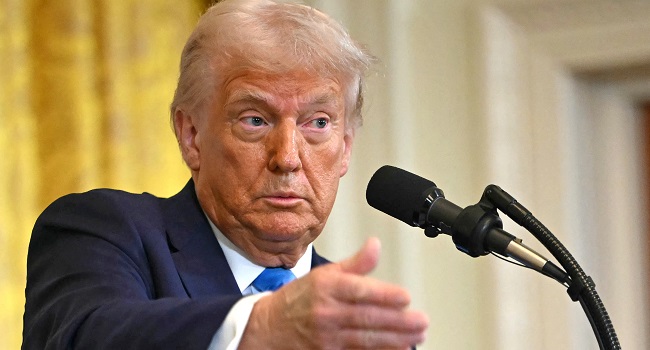President Donald Trump has praised what he called a “total reset” in US-China trade relations as top officials from both countries continue negotiations aimed at easing tensions triggered by his administration’s aggressive tariff policies.
Posting on Truth Social early Sunday, Trump described the ongoing talks as “very good” and “negotiated in a friendly, but constructive, manner.”
Sunday marks the second day of high-level closed-door meetings in Geneva between US Treasury Secretary Scott Bessent, Trade Representative Jamieson Greer, and China’s Vice Premier He Lifeng. According to sources familiar with the talks, the focus remains on de-escalation rather than immediate breakthroughs.
“These tariffs are a lose-lose proposition,” said Nathan Sheets, chief economist at Citigroup, noting that the current economic strain benefits neither side.
This round of talks is the first face-to-face engagement between the two nations’ senior trade officials since Trump imposed sweeping tariffs on Chinese imports last month, raising cumulative duties on certain goods to as much as 245%. In response, China enacted 125% tariffs on American goods, creating a near freeze in bilateral trade.
Though Trump has hinted at potentially lowering tariffs—suggesting on social media that an “80% Tariff on China seems right”—his press secretary, Karoline Leavitt, later clarified that any tariff reductions would require reciprocal concessions from Beijing.
Saturday’s opening session took place at the Swiss ambassador’s residence near Lake Geneva. Both sides entered with tempered expectations. US officials emphasized a need to “de-escalate,” while China maintained its stance that the US must move first on tariff relief.
In a commentary, China’s state-run Xinhua News Agency called the discussions “an important step in resolving the issue.”
Despite skepticism from analysts, the fact that dialogue is happening at all was seen as a positive signal. “It’s good news for businesses and the markets,” said Gary Hufbauer of the Peterson Institute for International Economics. However, he warned that even a tariff reduction to 70–80% could still severely reduce trade volumes.
Encouraging news for China came Friday when new data showed an unexpected rise in exports, likely driven by rerouting trade through Southeast Asia to soften the impact of US tariffs.
“There’s a growing realization among more moderate voices in the Trump administration that China may be better positioned to endure this trade war,” Hufbauer added.
The Geneva talks follow the announcement of a limited trade agreement between the US and the UK—the first such deal since Trump’s wave of tariffs began. While largely symbolic, the deal signals a willingness to negotiate sector-specific exemptions, though a 10% baseline tariff on British goods remains.
Still, expectations for the US-China talks remain low. “They may call the talks constructive and productive,” said Sheets, “but I wouldn’t expect real tariff reductions just yet.”
In his Sunday post, Trump concluded: “GREAT PROGRESS!! We want China to open up to American business—for the good of both countries.”

